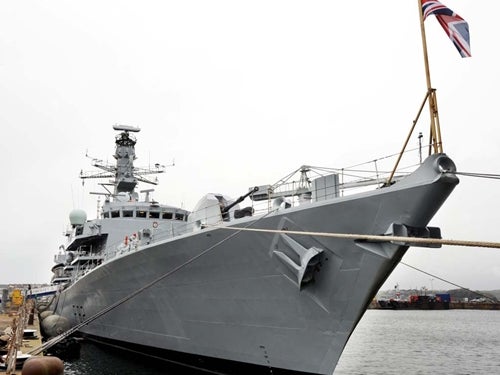
The UK Royal Navy’s Type 23 Duke-class guided-missile frigate, HMS Somerset (F82), has successfully completed extensive sea trials, following completion of its refit programme.
In addition to validating all onboard equipment, HMS Somerset used its navigation, ship handling and core war fighting capabilities to operate safely during the sea trials.
During testing, the ship also validated its newly installed radars, sonars and communication systems, as well as guns capabilities.
HMS Somerset commanding officer commander Mike Smith said: "We have all worked incredibly hard over the last few months to ensure that we return to the fleet ready and able to play our part."
The ship successfully completed a nine-month £20m refit programme with Babcock Marine, as part of the Surface Ship Support Phase 2 programme at Devonport Naval base.
Under the Surface Ship Support Alliance (SSSA) class output management (COM) Phase 2 arrangements, HMS Somerset is the first destroyer to undergo and complete a refit programme.
Swan Hunter and BAE Systems-built Duke-class ships are powered by a diesel-electric and gas (CODLAG) system, comprising Rolls-Royce Spey SM1A 34,000hp gas turbines and two Alstom 1.5MW electric motors.
Capable of accommodating a crew of 185, the 133m-long the ships have been designed to provide anti-submarine warfare (ASW) and anti-surface warfare (ASuW) capabilities.
In addition to vertical-launch Seawolf (GWS 26 Mod 1 VLS), the Duke-class frigates are armed with eight Harpoon surface-to-surface missiles in two four-cell launchers, as well as four 324mm torpedo tubes capable of carrying Stingray lightweight torpedoes.
The Plymouth based Type-23 frigate crew is scheduled to undergo training in preparation to rejoin the Royal fleet in mid-2013 for active service deployment with improved sustainability and combat capabilities.
Image: HMS Somerset stationed at Plymouth Naval Base. Photo: courtesy of Royal Navy.





